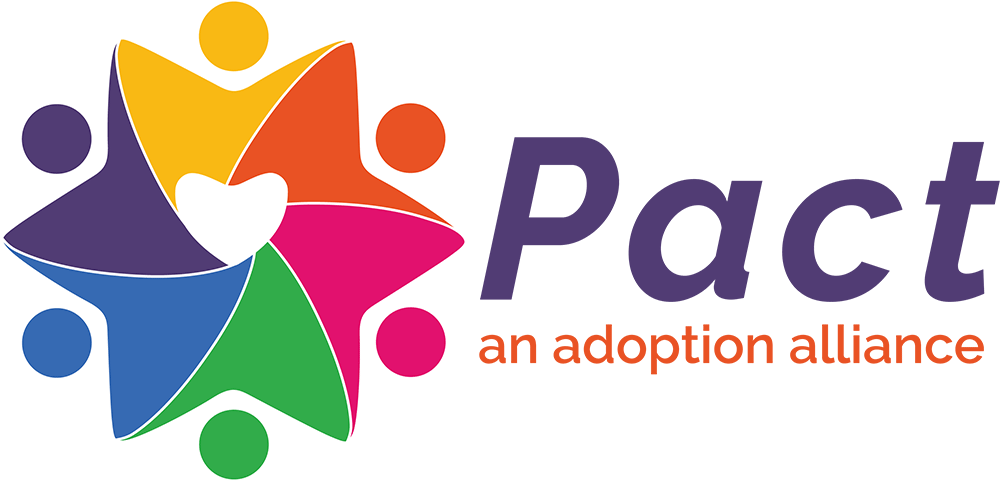Book Review
The Open-Hearted Way to Open Adoption: Helping Your Child Grow Up Whole
by Lori Holden with Crystal Hass
Reviewed by Katie Wynen
2013
Adoption creates a split between a person’s biology and biography. Openness in adoption is an effective way to heal that split and help the child become whole. These are the central ideas of The Open-Hearted Way to Open Adoption (Rowman & Littlefield, 2013), Lori Holden’s informative book about creating, navigating, and supporting an open adoption. Exploring a broad range of questions and scenarios, Holden—along with her daughter’s birth mother, Crystal Hass—provides guidance, support, ideas, and personal testimony about the beauty and the challenges that open adoption can bring.
Holden’s book provides a clear picture of what open adoption is, what openness means, and how beneficial it can be for the adopted child and all families involved. “Open adoption does not mean co-parenting. It means that in the eyes of the child both sets of parents have significant value.” Holden states early on that the child is the focal point in an open adoption, and she reiterates the importance of this throughout the book. Holden and Hass honor how difficult it can be for the adults involved in an open adoption to push aside their feelings of fear, ownership, and doubt, and keep the child’s feelings and questions at the center. Holden and Hass provide valuable testimony about how they worked together to navigate an open adoption and keep their daughter’s well-being as their foremost priority. In addition to sharing their own experiences, they are intentional about including the experiences and advice of other families with open adoptions, allowing the book to be multidimensional and inclusive.
The Open-Hearted Way to Open Adoption is accessibly written, well-researched, and covers a wide range of topics including ethics in adoption; foster and international adoption; embryo/sperm donation; honoring the birth father; how to maintain contact; what to do when contact is lost; resources for counseling; original birth records, sealed records and much more. The inclusion of poignant testimony from birth/first parents and adoptees provides an honest account not only of the success and importance of open adoption but of the struggles and questions faced by everyone involved.
I read Holden’s book through two different lenses. I am an international, transracial adult adoptee and I am an adoption social worker. Through both of these lenses I found a few areas of concern. As an adoptee I have issue with the term “forever family.” Holden uses this throughout her book to define and explain the adoptive parents/family. “Forever family” creates the image that an adoptive family is perfect, divorce will never happen, disrupted adoptions will not happen, and everything will stay intact. Given the recent media attention around “re-homing,” and the stories of adoptive parents sending their children back to their birth countries, it is clear that an adoptive family does not always mean a “forever family.” I also feel that this term demeans the birth family. I may not know my birth family, but I will think and talk and dream about them forever.
Holden does a great job of using positive adoption language like placed for adoption, adoption plan, and first/birth parents. In a few instances she uses the term original parents to refer to birth parents, a term I don’t love, but I appreciate the desire to acknowledge the range of language that various constituencies within the first//birth parent community prefer. When describing her meeting with Hass, Holden says they came together because they each had a problem. From a professional perspective, the term “problem” may not be the best way to describe an adoption. It could be true, but from my adoptee perspective, reading the word “problem” sparks many negative reactions and emotions. For adoptees who struggle with being adopted, claiming their identity, or navigating open or closed adoptions, being defined as a “problem” is not comforting.
Overall, the strength and importance of this book certainly outweighs these few concerns.
Holden’s book reminds me how different my own experience might have been if I had had an open adoption. For parents who are scared or worried about an open adoption, I urge you to read this book: it will help you put your feelings aside and think about the best interests of your child. I can honestly say it sucks to grow up not knowing my medical history, not knowing who I look like, not knowing where my talents and mannerisms come from. Being adopted never ends and it’s not always easy. Adoption creates a split between a person’s biology and biography. Openness in adoption is an effective way to heal that split and help the child become whole.
As an adoptee and a professional in the field of adoption, I recommend The Open-Hearted Way to Open Adoption for all members of the adoption constellation, adoption and mental health professionals, and anyone interested in adoption.
Katie Wynen (she/her), MSW, Pact’s Adoption Social Worker and LGBTQ Advocate, is a transracial, international Colombian adoptee. Katie has worked with members of the adoption triad since 2006. She studied under Dr. Joyce Maguire Pavao in Boston before moving to Oakland and joining the Pact staff in 2012. Katie works in adoption placement, leads the adult adoptee support groups, and provides adoption education nationwide. Katie is an Angels in Adoption 2019 Recipient from the Congressional Coalition on Adoption Institute.
